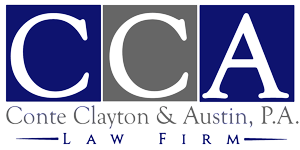New Jersey’s A-5804/S-4666 Amendment: Key Changes to the Mansion Tax Law
New Jersey’s A-5804/S-4666 Amendment: Key Changes to the Mansion Tax Law
The recently enacted A-5804/S-4666 bill amends N.J.S.A. 46:15-7.2 and imposes significant changes affecting New Jersey’s “mansion tax”—a real estate transfer tax imposed on certain residential and commercial properties sold for $1 million or more.
Mansion Tax Overview
Prior to the newly revised law, a 1% mansion tax was applied to the entire purchase price of certain properties valued at $1 million or above. The amendment under A-5804/S-4666 refines the definition of taxable transfers and clarifies liability for payment of the mansion tax in certain property transactions. Specifically, the amendment increases the mansion tax percentage beyond 1% when the property sold is valued at $2 million or more.
Key Mansion Tax Implications of the Amendment
• Expanded Scope of Taxable Transactions: The amendment broadens the types of transfers subject to the mansion tax, potentially capturing transactions that were previously ambiguous under the law. For example, certain transfers involving entities or trusts that effectively control the property being transferred.
• Substantially Increased Tax Liability for Transactions exceeding $2 million: Mansion tax rate has been increased for transactions exceeding $2 million dollars.
- A 2% tax will be applied to any portion of the sale price exceeding $2 million, up to $2.5 million;
- A 2.5% tax will be applied to any portion of the sale price exceeding $2.5 million, up to $3 million;
- A 3% tax will be applied to any portion of the sale price exceeding $3 million, up to $3.5 million; and
- A 3.5% tax will be applied to any portion of the sale price exceeding $3.5 million.
• Clarification of Taxpayer Liability: The legislation clearly delineates who is responsible for paying the mansion tax—specifically shifting the burden to the Seller under most circumstances. Previously, the responsibility was often negotiated between the purchaser and seller.
• Increased Enforcement and Collection Measures: The amendment authorizes enhanced enforcement mechanisms for the State to ensure proper mansion tax collection, which may affect closing procedures and documentation requirements.
Practical Impact
The new mansion tax regulations will take effect starting July 12, 2025. Buyers, sellers, and real estate professionals involved in high-value property transactions should carefully review these changes. The expanded scope means more transactions may trigger the mansion tax, and clearer liability rules necessitate thorough tax and estate planning. Consulting a legal professional is recommended to navigate the updated mansion tax framework and avoid unexpected liabilities.
This article is for informational purposes only and does not constitute legal advice. For advice specific to your situation or more detailed information regarding the amendment and its implications, please contact Conte Clayton & Austin, P.A.





